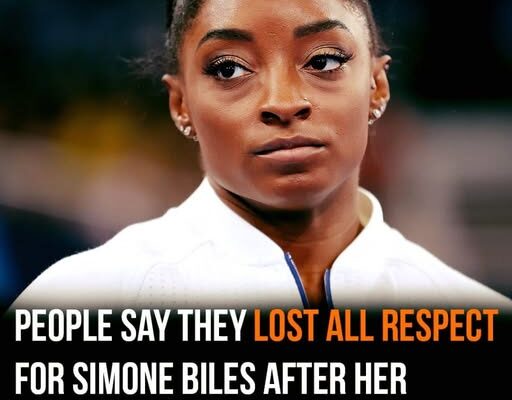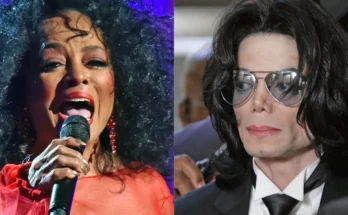Olympic icon Simone Biles has found herself at the center of a firestorm after publicly taking on former swimmer and conservative activist Riley Gaines in a fiery exchange on X.
It all started with what was supposed to be a celebration. The Minnesota State High School League posted a proud photo of Champlin Park’s softball team after they won the Class AAAA State Championship.
But instead of support, the post sparked controversy — and eventually, a full-blown social media clash between two sports powerhouses.

Riley Gaines Sparks Uproar — and Simone Biles Isn’t Having It
Outspoken former NCAA swimmer and current OutKick host Riley Gaines is making waves again — and this time, she’s reignited the fiery debate over transgender athletes in women’s sports.
It all began last Friday when the Minnesota State High School League posted a celebratory photo of Champlin Park’s softball team, fresh off their Class AAAA State Championship victory. But beneath the congratulations, Gaines stirred immediate controversy with a blunt comment:
“Comments off lol. To be expected when your star player is a boy.”
Though the post itself named no individuals, Gaines’ words were quickly interpreted as a jab at a transgender player — and the backlash was swift.
Simone Biles Strikes Back
Simone Biles, the most decorated gymnast in history and a global icon, didn’t hesitate to jump in. She quote-tweeted Gaines’ comment with a scorching reply:
“@Riley_Gaines_ You’re truly sick, all of this campaigning because you lost a race. Straight up sore loser.”
But Biles wasn’t finished. She followed up by accusing Gaines of targeting rather than protecting athletes:
“If you really cared, you’d be working on creating safe and fair categories. Instead, you’re just making it worse for everyone.”
Internet Erupts
Biles’ bold stand instantly divided social media.
Her supporters flooded the timeline with praise:
“This is what real leadership looks like. Thank you for speaking out, Simone.”
“Didn’t think it was possible to respect you more, but here we are. Class act, always. The GOAT of GOATs!”
But others were deeply critical:
“Disappointing. As a role model, you should be building bridges, not burning them.”
“Hard to see someone of your stature salt the earth for the next generation of women in sports.”
Some reactions were even harsher:
“And just like that, you’re no longer a role model for little girls.”
“Sad to see what you’ve become, Simone. Very sad…”
Gaines Fires Back
Gaines, never one to back down, responded with a lengthy Instagram post accusing Biles of hypocrisy — and of crossing the line into personal attacks.
She referenced a now-deleted tweet from Biles that reportedly read:
“Bully someone your own size, which would ironically be a male @Riley_Gaines.”
Calling the remark “body shaming,” Gaines pointed out the irony — especially since Biles herself had once been the target of cruel body-related commentary.
“For someone who knows what it’s like to be body-shamed, it’s shocking to see her make someone’s physique the punchline,” Gaines wrote.
A Culture War Flashpoint
The clash between Gaines and Biles has once again thrown fuel on the fire of a broader cultural battle over fairness, identity, and the future of women’s sports. As the conversation rages on, one thing is clear: neither side is backing down — and the world is watching.

A Clash of Values, Not Just Words
What’s unfolding between Riley Gaines and Simone Biles isn’t just a social media skirmish — it’s the latest flashpoint in a deeper, polarizing battle over fairness, identity, and the future of women’s sports in America.
At the heart of the storm stands Riley Gaines — a 12-time All-American swimmer and University of Kentucky graduate — who’s become one of the most prominent and controversial voices challenging transgender inclusion in women’s athletics.
Her advocacy began in earnest after she tied with transgender swimmer Lia Thomas at the 2022 NCAA Championships — a moment Gaines now describes as a personal awakening.
“That was the day I realized how much is at stake,” she’s said. “It wasn’t just about a race. It was about the integrity of women’s sports.”
Since then, Gaines has become a regular presence in headlines and hearings. She’s testified before Congress, aligned with conservative advocacy groups, and anchored herself as a warrior on the frontlines of the Title IX battlefield. To supporters, she’s a courageous defender of women’s rights. To critics, she’s a gatekeeper enforcing exclusion under the banner of fairness.
Simone Biles Breaks Her Silence — and Faces Blowback
Meanwhile, Simone Biles — a four-time Olympic gold medalist and widely admired icon — shocked many with her decision to jump headfirst into the controversy. Known for staying above political frays, Biles’ decision to speak out marked a stark departure from her usual posture of quiet strength.
But to some, this was exactly the kind of strength the moment demanded.
“This is leadership,” one supporter wrote. “Speaking for those who often can’t speak for themselves.”
Still, the backlash came just as swiftly. Some fans who once idolized Biles now accuse her of jeopardizing the very legacy she fought so hard to build.
Enter Jay Feely — And the Debate Gets Hotter
Adding fuel to an already raging fire, former NFL kicker-turned-political commentator Jay Feely publicly blasted Biles’ comments — and didn’t hold back.
“Simone wouldn’t have a single Olympic medal if she had to compete against biological males,” Feely said, doubling down on his support for Gaines. “Her position isn’t just unfair — it’s dangerous. It puts biological females in physically compromising situations.”
Feely’s comments, though inflammatory, echo a sentiment shared by many who believe the current trajectory of trans inclusion in women’s sports is unsustainable.
The Bigger Picture
What began as a single Instagram comment has morphed into a full-blown cultural reckoning — one that forces athletes, fans, and lawmakers alike to confront uncomfortable questions. What does fairness mean in the 21st century? Who gets to compete, and under what terms? And can inclusion and equality coexist in competition?
The battle lines are drawn — and the world is watching.

Danica Patrick Enters the Ring
The firestorm surrounding Riley Gaines and Simone Biles grew even hotter when former NASCAR driver Danica Patrick joined the fray — and she didn’t mince words.
Taking to Instagram, Patrick backed Gaines unequivocally and took a veiled swipe at Biles, suggesting the gymnastics legend had been “red pilled” — a controversial term often used to imply someone has been misled by ideological narratives or skewed information.
“This issue has a shelf life. I truly believe common sense will prevail,” Patrick wrote. “But until then, I’m grateful for people like Riley Gaines who are making sure no one gets away with it.”
She went even further, doubling down on her disdain for transgender inclusion in women’s sports:
“Not to mention the fact that [Gaines] actually lived it. Defending men in women’s sports is either the woke mind virus or something that needs therapy. Either way, it’s completely irrational.”
Patrick’s remarks were blunt, unapologetic, and sure to intensify the already charged debate. Her post was met with praise from Gaines’ supporters — and criticism from those who saw it as dismissive and inflammatory.
More Than a Social Media Feud
With high-profile names like Biles, Gaines, and Patrick now locked in a cultural clash, it’s clear this isn’t just an internet spat. It’s a national reckoning — a deeply personal, emotionally charged battle over what fairness, inclusion, and womanhood mean in modern sports.
And as the debate continues to unfold, one thing is certain: this conversation is far from over — and the world isn’t looking away.



